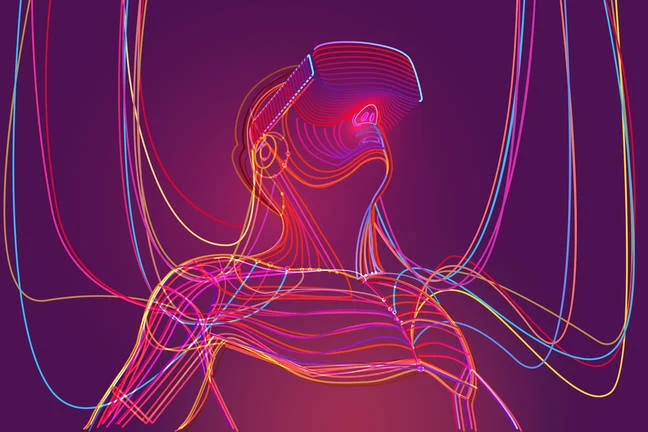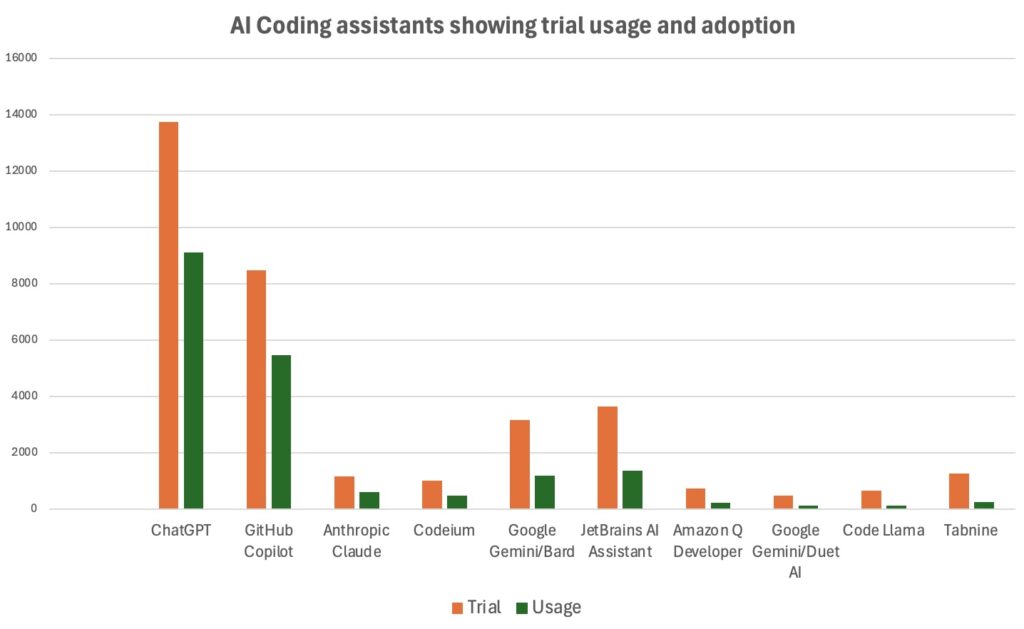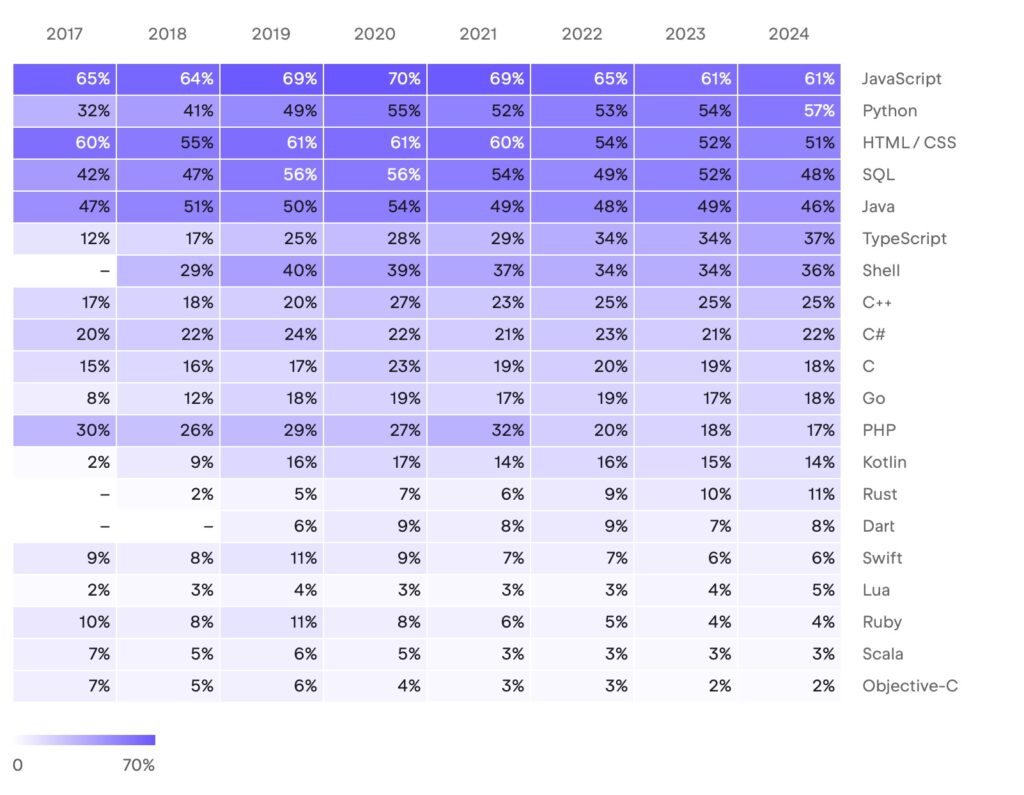
JetBrains has published its State of Developer Ecosystem report, based on responses from over 23,000 developers, including data on which AI coding tools are most adopted after trial usage – and revealing that many developers are keen to try coding with virtual reality headsets as a new kind of workspace.
Developers were asked which AI tools had been “used or tried for coding and other development-related activities,” and then which AI tools are actually in use. The two questions together give an idea of which of the many available coding assistants are most useful – though cost is also a factor. 32 tools were listed.

We took a look at 10 of the most popular such tools, using the raw data that JetBrains provides, without any weighting. This tells us that ChatGPT is not only the most popular tool, but also the best-adopted: 66.4 percent of those who tried it continued to use it. The next most popular, GitHub Copilot, is also the second most adopted, at 64.5 percent ratio.
Anthropic Claude, though only used by 2.7 percent of respondents, was adopted with a 52.4 percent ratio, showing a good level of satisfaction. Ranked by adoption ratio, the next was Codeium with 48.3 percent, followed by Google Gemini/Bard at 37.6 percent. JetBrains AI Assistant has a 37.2 percent adoption ratio, and Amazon Q Developer only has 31.1 percent, despite a generous free tier.
Unfortunately, the survey does not distinguish between paid and free usage, but this is a good result for GitHub Copilot which does not have a free tier, other than for students, teachers, and open-source maintainers.
The company has published the full set of questions which show this to be a sophisticated survey; there are 669 questions though respondents only see a small subset of these as some depend on previous answers. It is also helpful that results from previous years are shown, making it easy to spot trends. The survey was conducted between May and June this year and the methodology includes weighting in an attempt to mitigate bias towards users of JetBrains tools, and to reflect the estimated population of professional developers in different regions.
The full survey is here and has plenty of detail. Note that the weighted results for AI tool usage and adoption are different from our figures, but show a similar pattern. In most cases percentages sum to more than 100 because of developers selecting more than one option.

Regarding language popularity, there is not much to see other than confirmation of known trends. Python usage is increasing and at 57 percent is closer than ever to top-placed JavaScript (61 percent), which is in slight decline. TypeScript is also higher than ever before at 37 percent, as is Rust at 11 percent. PHP by contrast is at its lowest ebb since 2017 with 17 percent, as is Ruby at 4 percent. Stalwarts such as Java, C, C++ and C# are all holding steady.
In database managers, there is a notable jump for PostgreSQL, from 38 percent to 45 percent year on year, though MySQL is holding steady at 52 percent. SQLite usage is also up, from 25 percent to 30 percent of respondents.
The question on cloud platforms show continued dominance of AWS, most used by 46 percent of developers, follows by Microsoft Azure at 17 percent and Google Cloud Platform with 11 percent.
Finally, according to the survey coding with a VR (Virtual Reality) headset is increasingly popular, with top reasons including visualization of complex data, providing a multi-screen virtual workspace, and enabling work for any location. Around 8 percent of developers have tried this, and nearly 50 percent would like to try it. The main snag encountered? 18 percent “experience physical discomfort or have health concerns related to prolonged VR use,” the survey reports.
